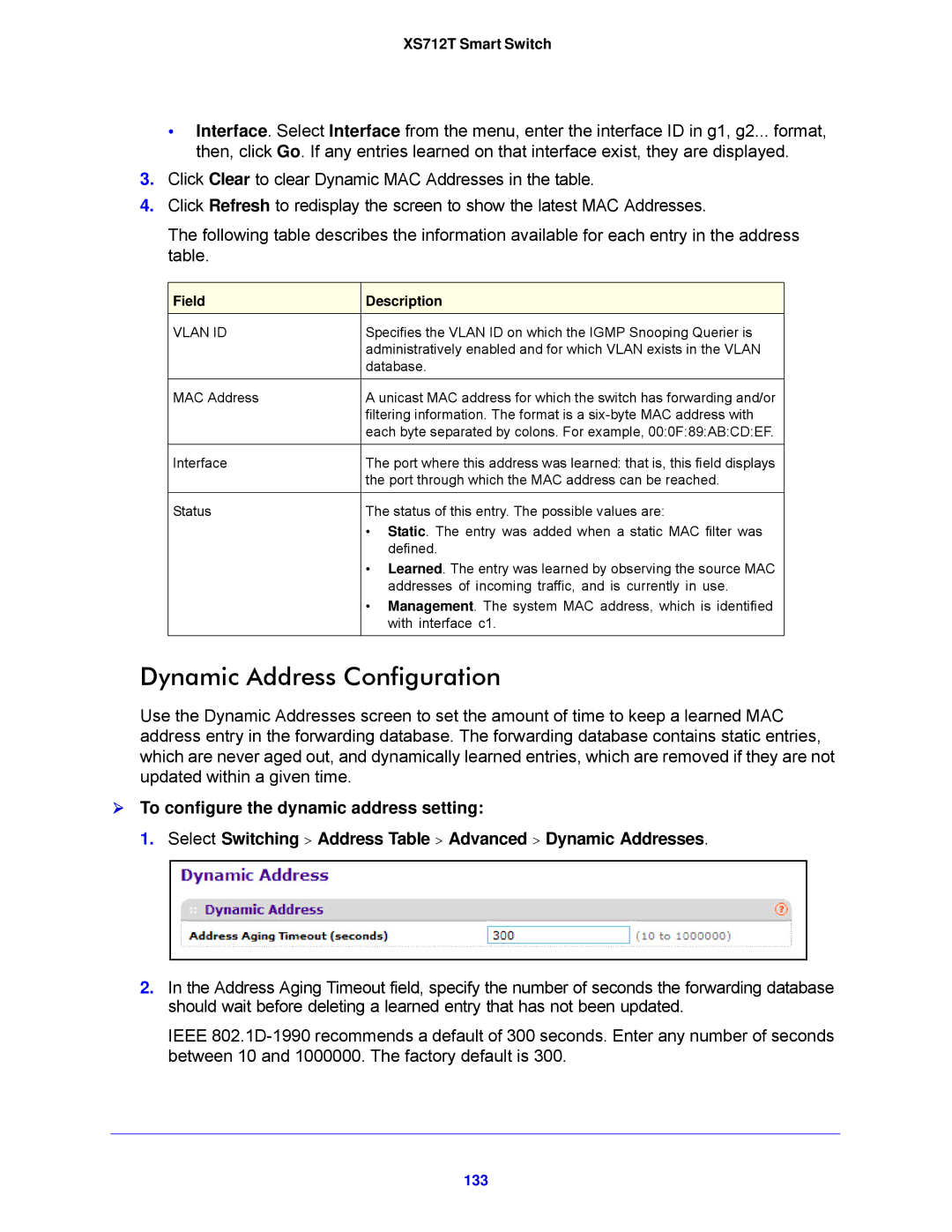
XS712T Smart Switch
•Interface. Select Interface from the menu, enter the interface ID in g1, g2... format, then, click Go. If any entries learned on that interface exist, they are displayed.
3.Click Clear to clear Dynamic MAC Addresses in the table.
4.Click Refresh to redisplay the screen to show the latest MAC Addresses.
The following table describes the information available for each entry in the address table.
Field | Description |
VLAN ID | Specifies the VLAN ID on which the IGMP Snooping Querier is |
| administratively enabled and for which VLAN exists in the VLAN |
| database. |
MAC Address | A unicast MAC address for which the switch has forwarding and/or |
| filtering information. The format is a |
| each byte separated by colons. For example, 00:0F:89:AB:CD:EF. |
Interface | The port where this address was learned: that is, this field displays |
| the port through which the MAC address can be reached. |
|
|
Status | The status of this entry. The possible values are: |
| • Static. The entry was added when a static MAC filter was |
| defined. |
| • Learned. The entry was learned by observing the source MAC |
| addresses of incoming traffic, and is currently in use. |
| • Management. The system MAC address, which is identified |
| with interface c1. |
Dynamic Address Configuration
Use the Dynamic Addresses screen to set the amount of time to keep a learned MAC address entry in the forwarding database. The forwarding database contains static entries, which are never aged out, and dynamically learned entries, which are removed if they are not updated within a given time.
To configure the dynamic address setting:
1.Select Switching > Address Table > Advanced > Dynamic Addresses.
2.In the Address Aging Timeout field, specify the number of seconds the forwarding database should wait before deleting a learned entry that has not been updated.
IEEE
